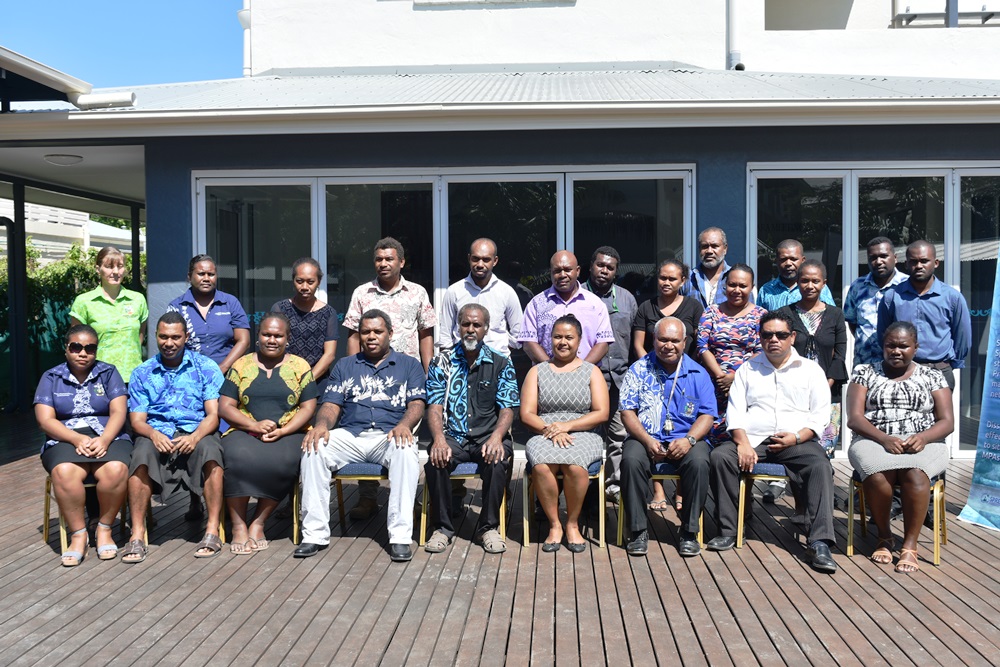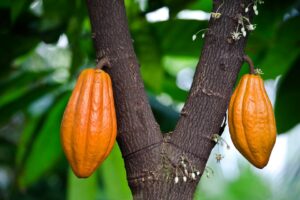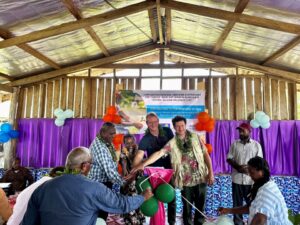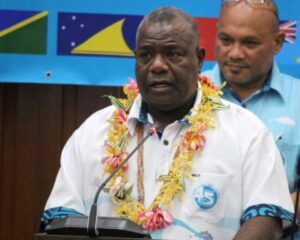THE Minister of Environment, Honourable Dr Culwick Togamana has recently highlighted that the Solomon Islands Government is committed to integrated planning and management of our ocean.
“The ocean and its resources are of great value to the people of Solomon Islands.
“The Government and Ministry of Environment has provide the basis for people’s livelihoods and food security, and contribute significantly towards the economy of Solomon Islands. We recognise that 98% of the country is ocean and they are committed to ensuring the sustainable management and protection of the ocean for now and the future of Solomon Islands.
“Just like on land, there are many people undertaking many activities in the ocean, commercial fishing, subsistence fishing, shipping, aquaculture and prospecting for minerals,” he highlighted the key issues at the official launch of the reports.
Solomon Islands Government Ministry of Environment, Climate Change, Disaster Management and Meteorology (MECDM) has recently launched two reports titled Biophysically Special Unique Marine Areas of the Solomon Islands and Marine Bioregions of the Solomon Islands at the Heritage Park Hotel in Honiara on 6 September 2018.
Dr Culwick Togamana, the Minister of Environment, Climate Change, Disaster Management and Meteorology (MECCDMM), said at the September launch the report would be useful when making decisions about the issuing of licences, permits, coastal development, and environmental impact assessments that are essential for national marine planning.
While many parts of the marine environment were special or unique, every part mattered and was interconnected, he said.
“The government recognises this so in February this year it convened the Solomon Islands’ marine experts to describe the entirety of Solomon Islands’ marine environment from the coast to the outer bounds of our Exclusive Economic Zone.
“The whole marine environment was divided into 26 deep water-defined marine bioregions and 18 reef-associated bioregions,” Dr Togamana said.
The first report described how these bioregions were developed.
The second report described how the bioregions would allow the Solomon Islands to improve its efforts in complying with international commitments such as an ecologically representative network of Marine Protected Areas as in the Convention on Biological Diversity, an international treaty signed in 1992 by 168 countries.
The Minister said with the completion of the two reports, the final, technical building blocks were in place for the country to start national discussions with all sectors, communities, traditional owners, industries, and with all levels of government and with all citizens, about how to plan how conflicting uses and values of the country’s ocean could be better coordinated and managed.
Dr Togamana said to successfully manage all these activities into the future, and to ensure our ocean remains healthy to support these activities, we must not consider these activities in isolation, and instead we must look at the activities holistically.
“Am pleased that our Government, through the work of Ocean 12, has identified a participatory Marine Spatial Planning process as one of the key aspects. In this regard, our Government has shown commitment to integrated governance and management of our oceans.
“The Solomon Islands Government has launched the two key reports that form an important building blocks for delivering on integrated ocean management,” Dr Togamana said.
One report describes 65 unique areas of the Solomon Islands, identified last year by a group of Solomon Islands marine experts – 53 inshore sites and 12 offshore sites.
Rosalie Masu, the Deputy Director for Inshore Fisheries Division, Ministry of Fisheries and Marine Resources (MFMR), delivered the keynote address at the report launch on behalf of the Minister for MFMR, Hon John Maneniaru.
“The Government wishes to have in place an integrated ocean development and management plan similar to efforts experienced over the past decades in land based planning,” she said.
“The ocean and its resources are of great value to the people of Solomon Islands. They provide the basis for people’s livelihoods and the government vows to do more to protect the benefits we all get from these resources.”
She said while the Government was doing much to address these threats at different sectoral levels, it had recognized the need to work across ministries, public and private sectors, provincial governments, and local communities’ boundaries.
Mrs Masu said that to successfully manage all these ocean related activities in the future and to ensure the ocean remained healthy it could not be looked at in isolation. Activities must be looked at holistically and cohesively.
As part of its regional obligations, sharing information with its neighbouring countries was also vital. This also provided an opportunity to invite a Vanuatu Foreign Affairs representative, Tony Tevi who shared lessons learnt and experiences from Vanuatu.
“It’s a platform that brings together all sectors for them to start collaboration,” Rosalie said.
The two reports are seen as key building blocks towards the development of a Marine Spatial Plan. As the MACBIO Project closes in Solomon Islands this year, Ocean12 can help carry forward its work in preserving and protecting the country’s and Pacific Island region’s main marine resource.
Trevor Maeda is a Principal Conservation Officer with the Environment and Conservation Division at MECDM, and worked with Ms. Vave-Karamui on establishing and supporting protected areas.
“What the MACBIO Project has done so far in terms of the products produced is establish a platform for the division to carry on, especially under a work plan, to derive activities to be done to ensure special and unique marine areas,” said Mr. Maeda.
“Marine-protected areas and other management measures have also been identified, established, and even formalised and managed under relevant national laws, including provincial ordinances.”
Our oceans produce more than half of the oxygen for the air we breathe, help regulate earth’s temperature, and provide us with food and medicines. But pollution from plastics and other non-decomposing materials making their way into the waters, rising temperatures damaging coral reefs, and overfishing depleting marine life are threatening these vast resources.
Recognizing the need to preserve our largest and deepest ocean—the Pacific—the Government of the Solomon Islands, through the Office of the Prime Minister and Cabinet, established the Ocean12, a national, inter-ministerial committee that oversees and implements initiatives to protect, manage and properly govern the ocean.
It came about after the Government hosted the Inaugural National Ocean Summit in 2015, which was attended by 12 ministries that have a vested interest and legislative mandates in the ocean and its resources. In 2016, the Cabinet endorsed the formal establishment of Ocean12, a steering committee consisting of these 12 ministries, to develop a national approach to Integrated Ocean Governance.
Ocean12’s priorities focus on the National Ocean Policy; the use of a participatory Marine Spatial Planning process; and the resulting adaptation of legislation, capacity development and sustainable financing efforts.
Ocean12’s Marine Spatial Planning process is supported by the regional MACBIO (Marine and Coastal Biodiversity Management in Pacific Island Countries) Project, which has helped preserve and manage marine environments and ecosystems in the region from 2013-2018. The project was commissioned by the Deutsche Gesellschaft für internationale Zusammenarbeit (GIZ, German Agency for International Cooperation) and the German Federal Ministry for the Environment, Nature Conservation and Nuclear Safety (BMU), as part of the International Climate Initiative (IKI). The project is also coordinated and jointly implemented by GIZ, the International Union for Conservation of Nature (IUCN) and the Secretariat of the Pacific Regional Environment Programme (SPREP). In addition to working in Solomon Islands, the MACBIO Project has helped Fiji, Kiribati, Tonga and Vanuatu sustain their marine ecosystems







